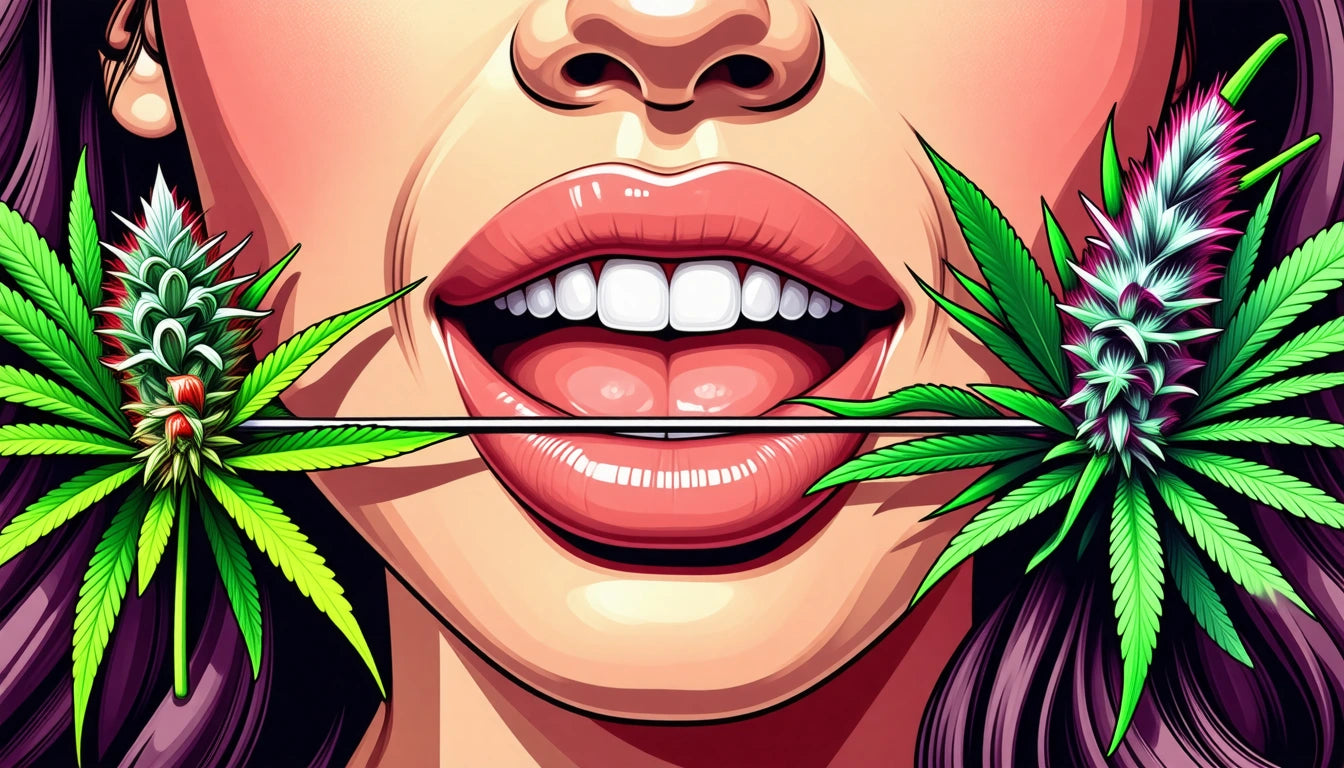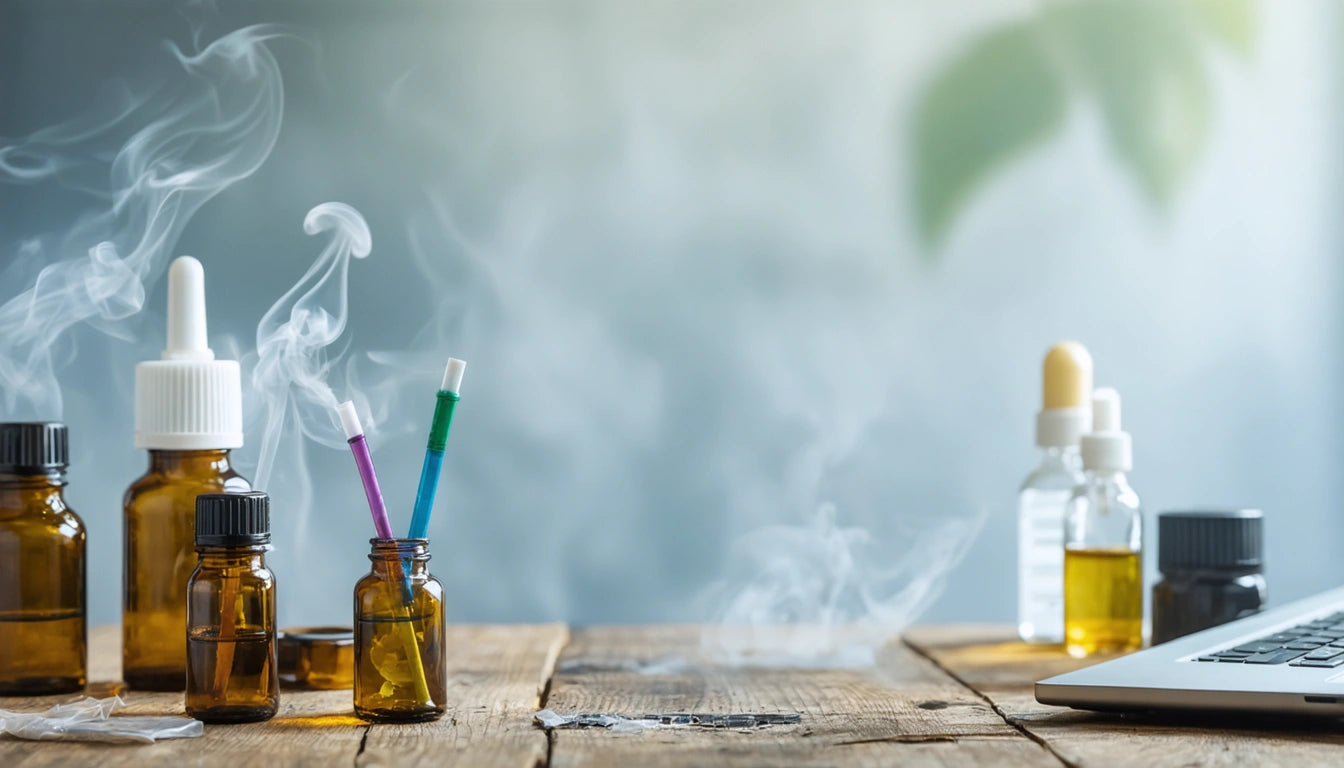Table of Contents
How Long Does Weed Stay Detectable in a Mouth Swab Test?
Mouth swab tests have become increasingly common for detecting recent cannabis use, particularly in workplace settings and roadside checks. Understanding how long weed stays in your saliva is crucial information for cannabis consumers who may face testing. This comprehensive guide explores detection windows, influencing factors, and practical information about saliva-based cannabis testing.
Mouth Swab Test Basics: How Cannabis Detection Works
Oral fluid tests, commonly called mouth swab tests, detect the presence of THC (tetrahydrocannabinol), the primary psychoactive compound in cannabis. Unlike urine or blood tests that look for THC metabolites, saliva tests typically screen for the parent compound itself. This makes them effective at identifying very recent use rather than use from days or weeks ago.
The testing process is straightforward: a collection pad or swab is placed between the lower cheek and gums or under the tongue for 1-2 minutes. The sample is then analyzed using immunoassay screening, with positive results typically confirmed by more sensitive methods like gas chromatography/mass spectrometry (GC/MS).
Detection Windows for Cannabis in Saliva
The detection window for cannabis in saliva varies based on several factors, with frequency of use being one of the most significant. How long weed stays in your saliva depends largely on your consumption patterns.
Occasional Users
For infrequent users who consume cannabis once a week or less:
- THC is typically detectable for 24-48 hours after smoking
- Some tests may detect THC for up to 72 hours in certain individuals
- After 24 hours, detection probability decreases significantly
According to research on THC detection windows, most occasional users will test negative after 24 hours of abstinence.
Regular Users
For regular users who consume cannabis several times per week:
- THC may be detectable for 48-72 hours after last use
- Detection window can extend to 3-4 days in some cases
- Residual THC may bind to oral tissues, extending detection time
Heavy Users
For daily or multiple-times-daily users:
- Detection possible for up to 1 week after cessation
- Some specialized tests may detect use for up to 29 days in chronic users
- Consistent heavy use leads to THC accumulation in tissues
When storing cannabis products, many consumers opt for discreet, compliant packaging options like smell-proof mylar bags designed for eighths to maintain freshness while minimizing odor that might attract unwanted attention.
Factors Affecting How Long Weed Stays in Your Saliva
Several variables influence how long cannabis remains detectable in oral fluid:
- Consumption method: Smoking and vaping leave more immediate traces in saliva than edibles
- THC potency: Higher-potency products may extend detection windows
- Individual metabolism: Faster metabolizers clear THC more quickly
- Hydration level: Well-hydrated individuals may clear THC somewhat faster
- Oral hygiene: Thorough oral care may slightly reduce detection windows
- Test sensitivity: Different tests have varying detection thresholds (typically 4-25 ng/mL)
Body mass index and gender also play minor roles in how quickly THC clears from saliva, though these factors have less impact than they do for urine testing.
How Mouth Swab Tests Compare to Other Drug Tests
Understanding how saliva tests compare to other common drug screening methods helps contextualize their strengths and limitations:
- Urine tests: Detect use for 3-30+ days depending on usage patterns; test for metabolites rather than active THC
- Blood tests: Detect active THC for 1-2 days in occasional users; up to 7 days in regular users
- Hair tests: Can detect use for up to 90 days but don't effectively show recent or occasional use
- Breath tests: Emerging technology; currently detect use within approximately 2-3 hours
Cannabis detection times vary significantly across test types. Mouth swab tests have become popular because they're less invasive than blood tests, harder to adulterate than urine tests, and better at identifying recent use that might indicate current impairment.
Practical Considerations for Cannabis Consumers
For individuals concerned about upcoming saliva tests, several practical points are worth noting:
- Most employment pre-screening tests provide sufficient advance notice for occasional users to clear THC from saliva
- Roadside drug testing typically focuses on recent use that might affect driving ability
- Understanding your state's specific impaired driving laws is essential, as they vary significantly
- Some states with legal cannabis have established per se limits for THC in bodily fluids
While various methods claim to help pass saliva tests, most lack scientific validation. The most reliable approach remains abstaining from cannabis use for at least 48-72 hours before an anticipated test. For those with medical cannabis needs, discussing testing policies with employers and understanding legal protections in your state is advisable.
As cannabis legalization expands, testing protocols continue to evolve. Some jurisdictions are moving toward impairment testing rather than presence testing, recognizing that THC detection doesn't necessarily indicate current impairment, especially in regular users who may have developed tolerance.
Understanding how long cannabis remains detectable in saliva helps consumers make informed decisions about their use in relation to potential testing situations.











Leave a comment
All comments are moderated before being published.
This site is protected by hCaptcha and the hCaptcha Privacy Policy and Terms of Service apply.